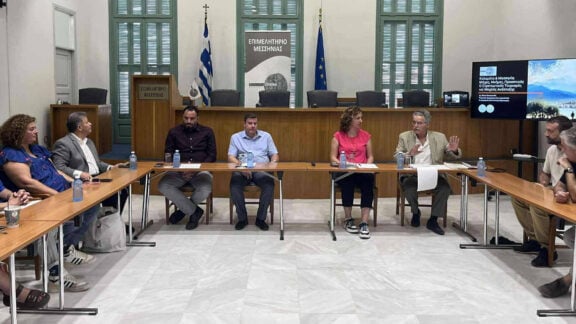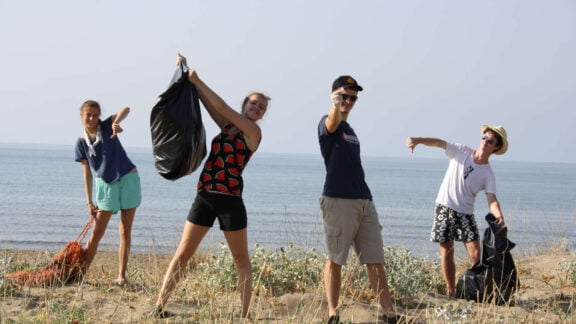I want to challenge the prevailing narrative in Victoria that our integrity bodies such as the Independent Broadbased Anti-Corruption Commission (IBAC) need extra powers to pursue inappropriate behaviour involving such things as, conflicts of interest, inappropriate lobbying, and branch stacking within political parties. The last of these is especially important in that it has historically targeted members of the Labor Party of ethnic background.
IBAC’s former Commissioner, Robert Redlich, has thus called for “an overhaul of IBAC’s legislation, saying the threshold required for the agency to be able to launch an investigation – if it believes a criminal offence has been committed – has stifled its role” and that it is “too onerous an obligation”.
My central contention is that IBAC has been given extraordinary powers to pursue real criminal corruption.
In using such powers to pursue individuals it suspects of behaving improperly, but not illegally, and publicly naming them – with significant reputational damage – is, in my view, a breach of their human rights. It deprives such individuals of the protections afforded by other processes.
IBAC’s enormous powers include compulsorily interviewing individuals and seizing all of their electronic and physical property. It can conduct what is tantamount to a trial. However, within IBAC, it is a trial where the individual under investigation is not allowed to hear, or cross examine the testimony of hostile witnesses. There are no discovery rules to look at the evidence that is being relied upon and the accused is not even entitled to know who is making the allegations or whether they have personal or political agendas.
IBAC collects the evidence, interprets it, selects which bits to use in its reports and determines the conclusions. The law governing IBAC’s right to reach and publish its damaging conclusions is extraordinary. The Commissioner conducting the investigation merely needs to satisfy himself that it was “open” to him to reach his conclusions based on evidence that only he sees.
This may be justifiable where IBAC is dealing with criminal conduct that is subsequently referred to the police for prosecution in a court. However, it is an abuse of human rights when applied to behaviour that is not criminal.
Two jurisdictions have recognised this danger and have now sought to reduce rather than increase the power of their Integrity bodies.
In South Australia when its ICAC embarked on serious overreach which led to a suicide and the destruction of the careers of several public servants, the SA parliament unanimously voted to restrict its ICAC to examining serious corruption only. The President of the Bar Council of South Australia Marie Shaw KC and two of her colleagues argued that South Australia’s corruption body experience is a warning against providing excessive powers without accountability to such bodies.
In Queensland a recent review of its Crime and Corruption Commission (CCC) was conducted and a 500-page report prepared by former Chief Justice of Queensland Catherine Holmes. The report followed an investigation by the CCC of former state public trustee Peter Carne in 2018. Mr Carne was cleared of any criminal activity, but the CCC nevertheless tried to report on its investigations in Parliament thus publicly shaming Mr Carne. Mr Carne took legal action to block the move which was ultimately upheld by the High Court of Australia. Ms Holmes recommendations (which have all been accepted) include that Elected officials cannot be named if corruption allegations are not proven, and “no critical commentary or expression of opinion concerning them” can be made in such circumstances. Essentially the review strengthens reporting powers for real criminal corruption but protects individuals where no such corruption has been found.
Contrary to what has happened in South Australia and Queensland, In Victoria, despite IBAC being publicly criticised for its role in naming an innocent woman who subsequently committed suicide, Left Independents, and the Greens have called in Parliament for IBAC to have more powers, more funding, and unlimited scope. This is dangerous, and the Government should not act without an independent review.
Such a review should consider the fact that, IBAC currently does not only pursue real indictable corruption involving bribery, fraud, theft or embezzlement. IBAC has found a way around the intent of its legislation. It initiates investigations based on satisfying itself, that indictable corruption may have occurred. Once commenced even if it finds no corruption it reports on “misconduct”.
The former head of IBAC has conceded this modus operandi in his comment on the Operation Daintree report that examined whether corruption occurred in the awarding of a $1.2m contract to a union-established training group. Redlich stated that while IBAC found that the behaviour “did not constitute criminal conduct, there was a “range of misconduct” identified.”
So, despite its legislative requirements, IBAC is already publicly reporting on misconduct where no criminal corruption occurred. The Independent Left and the Greens want to formalise this power. But, as I have stated, the use of IBAC’s enormous powers to pursue misconduct rather than corruption risks destroying reputations through public naming without any access to proper process.
In the example I am familiar with IBAC used its enormous powers to produce a report that accused me of “improper lobbying”. This it did without interviewing the Ministers concerned to ask them whether they thought I was lobbying them or just expressing a view as a party elder? You see it’s up to IBAC whether it considers or pursues contrary evidence.
This could have dire consequences for former ministers turned lobbyists who are listed in the newly published ministerial diaries. They better hope that IBAC does not drag them in and ask them questions about what was discussed and whether they were lobbying rather than expressing opinions. This really is Big Brother Writ Large and has the potential to undermine our democracy.
I supported the Education City Project in Melbourne’s West because I believed that it would have brought needed employment and educational opportunities in a multicultural area of Melbourne. I naively expressed my opinion when asked. I have learnt the hard way that you can’t do that. This brave new world could have dire consequences. I worry about the long-term impact of all these restrictions on free dialogue on our democracy.
In my case IBAC found difficulty in proving I was lobbying, as I was not being paid. So, they made what I think is the extraordinary claim that some donations to ALP campaigns by the company concerned could be represented as payments in kind to me. Apparently, it’s “open” to IBAC to reach this far fetched conclusion.
It’s important to note that those named and shamed by IBAC have little recourse to the courts. You see it is entirely up to IBAC to decide whether it is “open” to them to reach their findings and the Courts cannot overturn this right. The Victorian Inspector who is supposed to oversee IBAC is also constrained. If you complain he will tell you that he is prohibited from criticising the merits of IBAC’s conclusions.
IBAC does not need more power. Rather, it should be directed to use its enormous powers and resources to pursue real criminal corruption as its legislation states and not misconduct that can be handled by other processes that include protections for those accused. Human rights and accountability are at stake in Victoria if it does not.
Theo Theophanous is a Former Victorian Labor Minister and the president of the Greek Cypriot Community of Melbourne, Victoria.








